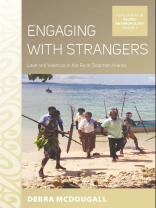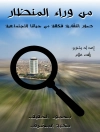The civil conflict in Solomon Islands (1998-2003) is often blamed on the failure of the nation-state to encompass culturally diverse and politically fragmented communities. Writing of Ranongga Island, the author tracks engagements with strangers across many realms of life—pre-colonial warfare, Christian conversion, logging and conservation, even post-conflict state building. She describes startling reversals in which strangers become attached to local places, even as kinspeople are estranged from one another and from their homes. Against stereotypes of rural insularity, she argues that a distinctive cosmopolitan openness to others is evident in the rural Solomons in times of war and peace.
Inhaltsverzeichnis
List of Illustrations
Acknowledgements
Notes on Language, Orthography, and Names
Maps
Introduction: On Being a Stranger in a Hospitable Land
Chapter 1. Ethnicity, Insularity, and Hospitality
Chapter 2. Ranongga’s Shifting Ground
Chapter 3. Incorporating others in violent times
Chapter 4. Bringing the Gospel Ashore
Chapter 5. No love? Dilemmas of Possession
Chapter 6. Estranging Kin: Contests over Tribal Ownership
Chapter 7. Losing passports: Mobility, Urbanization, Ethnicity
Conclusion: Amity and Enmity in an Unreliable State
Bibliography
Index
Über den Autor
Debra Mc Dougall is Senior Lecturer in Anthropology at the University of Melbourne. She co-edited Christian Politics in Oceania with Matt Tomlinson (Berghahn, 2013) and has published chapters and articles on religion, politics, and sociality.












